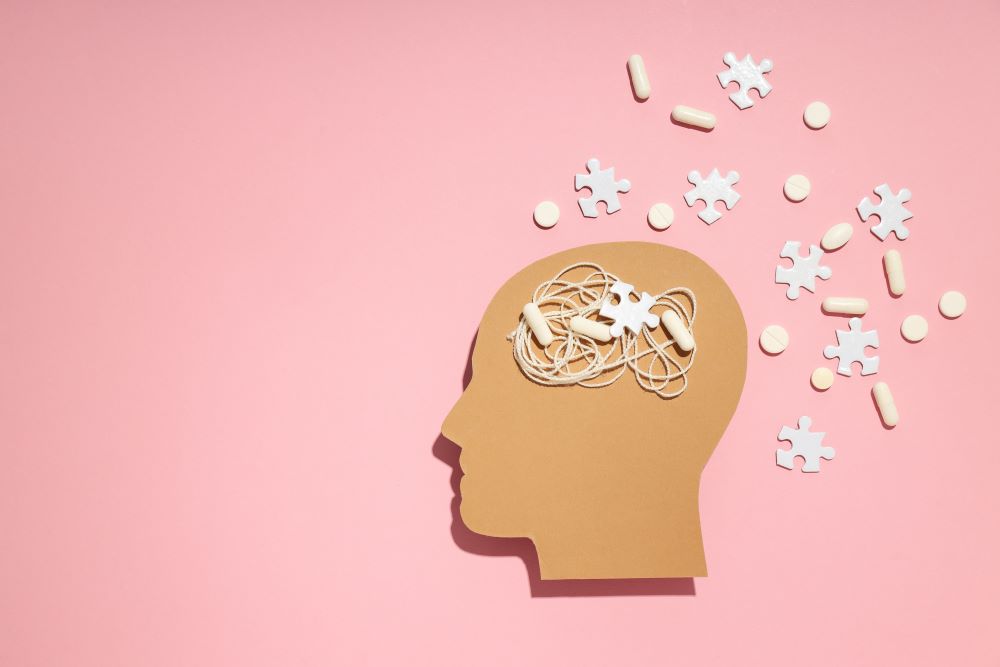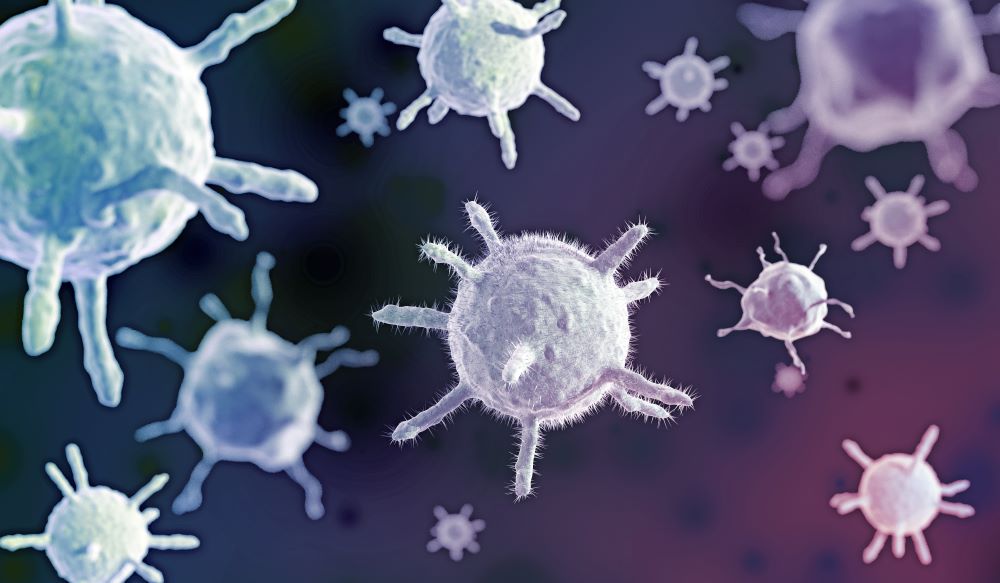List of 10 Diseases Caused by Lack of Sleep

Every adult needs an average of seven hours of sleep per night for overall well-being. Failing to abide by this can lead to several diseases due to lack of sleep.
Some of the most common diseases associated with lack of sleep are hypertension, diabetes, heart failure and heart attack. Other potential risks of sleep deprivation include obesity, depression and lower sex drive. Additionally, not getting enough sleep affects your overall appearance.

Table of Contents

What is Sleep Deprivation?
Sleep deprivation occurs when a person does not get enough quality sleep. It can affect a person’s health, well-being, and ability to focus on daily tasks. It can also affect the immune system and may increase the risk of certain health conditions.
Various aspects, such as life decisions, working hours, sickness or anxiousness, may include sleep deprivation. It can diminish memory and concentration, affect their mental state and feelings, and increase their chances of developing severe medical conditions like obesity, diabetes and heart ailments.
What Are the Causes of Lack of Sleep?
Lack of sleep can arise from various causes, such as anxiety and stress, that inhibit unwinding, making it difficult to fall asleep. Similarly to this is poor sleep hygiene, which may result from irregular sleep schedules, excessive screen time at night, or the consumption of caffeine and heavy meals in the late evening.
Insomnia, obstructive sleep apnea, or restless legs syndrome are all medical conditions that could disrupt one's ability to get a good night's sleep. Equally important are environmental factors like noise and light around you or the climate in your bedroom, which might affect your sleep quality on any given night.
10 Diseases Caused by Lack of Sleep and Their Symptoms
Lack of sleep can seriously impact health, leading to various diseases and conditions. The diseases caused by lack of sleep and their symptoms are –
1. Diabetes

Insufficient sleep can increase the risk of developing type 2 diabetes. Insomnia is capable of causing the body to become insulin resistant, which leads to an inability to properly absorb glucose that eventually causes type 2 diabetes.
Symptoms – The symptoms of type 2 diabetes include increased thirst, frequent urination, increased hunger, sudden weight loss, fatigue, blurred vision, slow-healing sores and frequent infections.
2. Cardiovascular Diseases

Research has found that people with a sleep disorder are prone to various cardiovascular diseases. High blood pressure, heart diseases and stroke have all been linked to lack of sleep due to increased strain on the heart and blood vessels.
Symptoms – Chest pain, chest pressure, chest tightness, angina, breath shortness and coldness in the legs and arms are symptoms of cardiovascular diseases.
3. Obesity

Individuals who do not get an adequate amount of sleep tend to gain body weight. Hormones that are responsible for hunger get disrupted when someone does not sleep enough, leading to overeating and making one gain weight.
Symptoms – Some symptoms of obesity are shortness of breath, excess body fat, unusual sweating, insomnia and inability to perform simple physical activities.
4. Depression

Individuals with sleeping disorders have a high chance of suffering from depression. Deprivation of sleep hurts brain functioning, which results in mood disorders like depression.
Symptoms – The symptoms of depression are feelings of sadness, angry outbursts, insomnia, fatigue, anxiety, worthlessness, and suicidal thoughts.
Now that you have learnt about the diseases caused by lack of sleep and their side effects, let’s move on to find their harmful effects on human beings.
5. Cognitive Impairment

People suffering from any sleep disorder can cause impairment of the brain, affecting its ability to recall things, concentrate and make decisions. It can highly affect the functioning of the brain and its ability to focus.
Symptoms: Some of its symptoms are poor attention span, often forgetting things, inability to learn new things and slow reaction times.
6. Weakened Immune System

Sleep deprivation weakens the immune system, which fights off infections, hence increasing the vulnerability to diseases. The production of cytokines, proteins essential for fighting infections and inflammation, is reduced due to lack of sleep.
Symptoms: They are recurring sicknesses, longer healing periods from diseases, and a tendency to develop more colds and flu.
7. Gastrointestinal Issues

Inadequate sleep interrupts the balance of gut bacteria, which might result in digestion challenges. This is also capable of worsening matters like IBS. On the other hand, this can augment pre-existing syndromes such as irritable bowel syndrome (IBS).
Symptoms: Signs include indigestion, flatulence, constipation or diarrhoea, plus worsening of symptoms in conditions like IBS.
8. Endocrine Disorders

Sleep controls hormone production. Chronic sleep deprivation may disrupt hormones like insulin, cortisol and growth hormone levels, leading to endocrine issues. Lack of sleep has a severe impact on hormones.
Symptoms: The symptoms include weight gain, menstrual irregularities, insulin resistance or high stress levels.
9. Metabolic Syndrome

Lack of enough sleep can cause metabolic dysregulation, which increases the chances of suffering from obesity, type 2 diabetes and cardiovascular diseases due to impaired glucose metabolism and appetite control.
Symptoms: Increased cholesterol levels and high blood pressure, among others, include abdominal obesity and high blood sugar.
10. Neurological Disorders

Chronic lack of sleep can contribute to the development of neurological disorders, such as anxiety, depression and even Alzheimer's disease, through impairment of brain function and increased oxidative stress.
Symptoms: Mood changes, higher level of anxiety or depression, memory deficit, plus, in severe cases, some signs connected with neurodegenerative diseases.
Now that you have learnt about the diseases caused by lack of sleep and their side effects, let's move on to find their harmful effects on human beings.
Risk Factors Associated With the Disease Caused by Lack of Sleep?

The diseases caused by lack of sleep have various harmful effects like –
- Type 2 diabetes Blood vessel and heart diseases, neuropathy in limbs, kidney diseases, eye damage, skin conditions, slow healing and heart impairment.
- Cardiovascular disease Chest pain, chest discomfort, chest tightness, shortness of breath, numbness in arms or legs and pain in the neck.
- Obesity Type 2 diabetes, heart diseases, stroke, sleep apnea, hypertension, liver diseases, gallbladder disease and certain types of cancer.
- Depression Mental disorders and also affects overall well-being. This can lead to mood disturbances and behaviour changes.
- Cognitive Impairment Insufficient sleep causes cognitive impairment, which involves poor memory, attentiveness and decision-making.
- Weakened Immune System Lack of sleep weakens the immune system, leading to various illnesses, such as colds or flu.
- Gastrointestinal Issues The brain-gut axis could be broken by an insomniac, resulting in gastrointestinal disorders such as IBS.
- Endocrine Disorders Sleep deprivation interrupts the synthesis of hormones necessary for growth, metabolism and reproductive health.
- Metabolic Syndrome Insufficient sleep is linked with metabolic syndrome, which causes high blood pressure, high blood sugar levels and abnormal cholesterol levels.
- Neurological Disorders: Prolonged sleeplessness enhances the possibility of having neurological disorders such as Alzheimer's disease or Parkinson's disorder.
Now that you know all about the harmful effects of diseases caused by lack of sleep, let’s proceed to learn how to diagnose them.
How to Diagnose the Diseases Caused by Lack of Sleep?
Before diagnosing the diseases caused due to lack of sleep, diagnosing sleep deprivation is essential. One of the tell-tale signs of lack of sleep is constantly feeling drowsy during the day. Furthermore, if anyone falls asleep within five minutes of lying down, they have sleep deprivation.
Let us take a look at how to diagnose the different diseases caused due to lack of sleep:
Treatment Methods for Diseases Caused by Lack of Sleep
Although some of these diseases are harmful, they are treatable. The diseases caused by lack of sleep can be treated in the following ways:
What Are the Preventive Measures to Control Diseases Caused by Lack of Sleep?
Avoiding sleep deprivation can prevent diseases caused due to lack of sleep. The following ways help to avoid the same –
- Maintaining regular sleep hours.
- Sleeping in a restful environment.
- Ensuring that the bed is comfortable.
- Exercising regularly.
- Reduce caffeine intake.
- Quit smoking.
- Limit screen time before bed.
- Limit alcohol consumption
- Stay hydrated
Does Health Insurance Cover Diseases Caused by Lack of Sleep

Because of the policy and provider, health insurance for diseases caused by sleep deprivation can differ significantly. Nonetheless, many health plans generally do include:
Sleep Disorders: This may encompass various assessments, tests, and treatments for conditions such as insomnia, restless legs syndrome, and sleep apnea.
Mental Health Issues: For example, some plans do not cover therapy or drug costs related to depression or anxiety that have arisen from sleep problems.
Chronic Conditions: In case sleeping disorders complicate such chronic illnesses as diabetes mellitus or hypertension, there may be coverage for treating these conditions.
It would be better if you clarify this with your insurance company since they will let you know what falls under their coverage in your given plan and whether some services or procedures need pre-authorisation before they are undertaken.
To sum it up, avoiding sleep deprivation can prevent all the diseases caused by lack of sleep. Other than the diseases, not getting adequate sleep affects your overall appearance and makes you feel fatigued. A prolonged lack of sleep can cause severe damage to your body. Therefore, be careful and monitor your sleep pattern.














